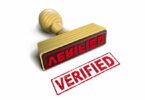Last month, Polish insurance company LINK4 announced it adopted a blockchain document authentication and verification solution developed by the National Clearing House (KIR) and start-up Coinfirm. LINK4 aims to use the distributed ledger technology (DLT) for secure communication with its clients and sharing of documents electronically in a trusted manner.
For banks, insurance companies, and other businesses, document storage, retrieval, and access are among the biggest pain points. Blockchain provides a shared ledger for addressing these issues, and its immutable nature ensures the documents can’t be tampered with. Additionally, it can limit access to information by other parties, revealing the essential data.
“LINK4 is the first insurance company that will use our durable carrier solution in blockchain technology to communicate with clients,” said Piotr Alicki, President of the Management Board of KIR, Poland’s National Clearing House. “Blockchain has huge potential in the insurance industry, generates real savings and ensures compliance with restrictive regulations.”
The solution saves insurance documents by hashing them on the blockchain, and they are signed with the company’s private key. LINK4 is providing a portal to its customers for viewing and verifying these documents through its website. This would reduce the paperwork for the insurer, saving costs.
Coinfirm has developed the Trudatum blockchain platform for document verification and registration. The start-up is focused on regulatory compliance, such as KYC and AML. The CEO Pawel Kuskowski was previously the Head of Global AML function for Royal Bank of Scotland and a Director of Compliance for UBS Poland. Its AML platform is focused on ICOs and crypto transactions and ensures compliance with some 270 risk checks.
The blockchain platform was recognized by the Office of Competition and Consumer Protection for its ability to prevent editing of documents and allowing access even after a contract has expired.
The solution is currently being used by Poland’s largest bank PKO Bank Polski and BNP Paribas Bank Polska.
Meanwhile, KIR and IBM have an existing relationship for blockchain document storage using Hyperledger Fabric. We’re awaiting clarification on whether this is the same solution.
There is another document management platform in production in the country which the Polish Credit Office developed in collaboration with the Billon Group.






